Symposia
View the Tentative Technical Program
The ten symposia of CMSC 2024 are:
Advanced Functional Textiles and Polymers
Advanced Materials for Sustainable Energy and Carbon Management
Advances in Rechargeable Metal Batteries
Challenges in the Shift to Alternative Energy Futures
Critical Metals: Powering Clean Energy Transitions
Materials and Corrosion Management for a Sustainable Future
Metal-Additive-Manufacturing: Processing, Structure, and Properties
Metallic and Ceramic Coatings
Nanomaterials Advancing the Hydrogen Economy
Operando Materials Characterization for Clean Energy
Symposia Descriptions
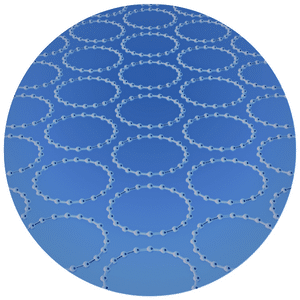
Advanced Functional Textiles and Polymers: Fabrication, Processing, and Applications
Chair: Dr. Patricia Dolez, pdolez@ualberta.ca, University of Alberta
Co-chair: Dr. Dan Sameoto, sameoto@ualberta.ca, University of Alberta
Textiles and polymers play foundational roles across industries, influencing daily life and spanning diverse fields. From essential clothing to intricate applications such as firefighter gear, aerospace components, and medical implants, their remarkable versatility shines. This symposium delves into their vibrant world, spotlighting multifaceted applications. Join us to explore, share pioneering research, and discuss the fabrication, processing, and extensive uses of advanced functional textiles and polymers. Uncover the latest advancements shaping their future, fostering sustainability, innovation, and multifunctionality. Join the journey shaping the evolution of these essential materials.
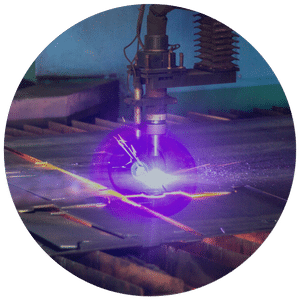
Advanced Materials for Sustainable Energy and Carbon Management
Chairs: Dr. Shiva Mohajernia, mohajernia@ualberta.ca,
Dr. Mohd Adnan Khan, mohd3@ualberta.ca,
University of Alberta
In the pursuit of a sustainable and resilient future, materials science plays a pivotal role in addressing the global challenges of energy sustainability and carbon management. This symposium brings together researchers in the field of materials science to explore cutting-edge advancements and applications that promise to reshape the energy landscape and mitigate the impacts of carbon emissions. This multidisciplinary gathering will encompass a wide spectrum of topics, including but not limited to: innovative energy materials, carbon capture and utilization, nanomaterials and emerging technologies, materials for clean fuel production, and sustainability and circular economy.

Advances in Rechargeable Metal Batteries
Chair: Zhixiao Xu, zhixiao2@ualberta.ca,
University of Alberta
Metal electrodes, including lithium, sodium, zinc, magnesium, and aluminum, have gained considerable attention as promising negative electrode materials for the next generation of high-energy metal batteries. Their impressive theoretical capacities and low redox potentials make them noteworthy, yet realizing their full potential presents significant challenges such as high reactivity, limited reversibility, low efficiency, and dendrite growth. Over the past decades, various strategies have been developed, including the modification of interfacial layers, construction of hosts, and engineering of electrolyte/separator. This symposium aims to provide a comprehensive overview of the latest advancements in this research field, covering innovative approaches and breakthroughs in overcoming the challenges associated with rechargeable metal batteries.

Challenges in the Shift to Alternative Energy Futures
Chairs: Dr. Qingyang Liu, qliu@hbku.edu.qa
Dr. Afrooz Barnoush, abarnoush@hbku.edu.qa
Qatar Environment and Energy Research Institute
As the world embraces alternative energy, our event unites experts, researchers, and industry leaders to address pivotal hurdles in constructing a sustainable energy paradigm. The symposium delves into diverse challenges such as hydrogen complexities in oil and gas environments, hydrogen embrittlement in energy storage, material challenges in emerging green and renewable energy sectors, overcoming obstacles in the production of renewable energies, and more. Join us for collaborative discussions, interdisciplinary dialogues, and shared expertise to chart a course toward a resilient energy ecosystem. Let’s collectively confront intricate challenges and ensure a seamless transition to alternative energy futures.
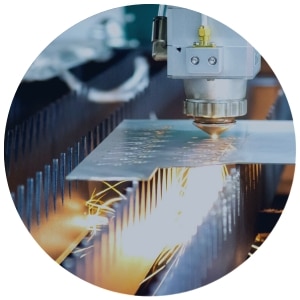
Critical Metals: Powering Clean Energy Transitions
Chairs: Dr. Lucy Xia, Liuyin@ualberta.ca
Dr. Daniel Alessi, alessi@ualberta.ca
University of Alberta
In response to the escalating demand for critical metals driven by the evolution of clean energy technologies, an imperative examination of their present status and prospective trajectories is warranted. This symposium on Critical Metals is purposefully designed to meticulously investigate the processing of critical minerals and their indispensable role in facilitating sustainable and responsible transitions toward clean energy. Embracing an array of case studies spotlighting cutting-edge research and innovations, the symposium seeks to showcase advancements that enhance the extraction, processing, and recycling of critical metals. Positioned as a knowledge-rich forum, our symposium aims to impart valuable insights, catalyzing collaborative discussions and fostering partnerships among industry professionals. We envision this symposium as a pivotal platform, contributing meaningfully to the discourse surrounding critical metals and their pivotal role in shaping the future of clean energy transitions.
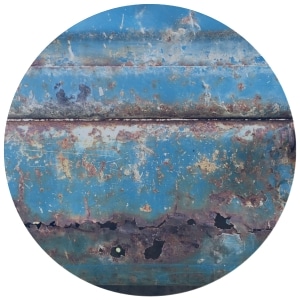
Materials and Corrosion Management for a Sustainable Future
Chairs: Monica Hernandez, monica@infinitygrowth.ca
Erick Anaya, erick@infinitygrowth.ca
Infinity Growth Corp
This symposium is a pivotal forum that explores the intricate interplay between corrosion, integrity management, and sustainability. The symposium endeavors to catalyze a paradigm shift towards the adoption of a holistic approach to materials and corrosion management. This approach aims to mitigate failures, environmental incidents, and financial burdens while concurrently fostering the principles of a circular economy. Attendees are invited to engage in discussions and knowledge-sharing sessions, delving into innovative strategies and practices for achieving a sustainable future in materials and corrosion management.

Metal-Additive-Manufacturing: Processing, Structure, and Properties
Chairs: André Phillion, philliab@mcmaster.ca, McMaster University
Daan Maijer, daan.maijer@ubc.ca, University of British Columbia
This symposium invites submissions that focus on all aspects of materials science and engineering in metal-based Additive Manufacturing. Submissions are especially encouraged in the following topics: (1) Process-induced microstructures and defects of metal-based AM materials, (2) Process-structure relationships (e.g., modulus of elasticity, tensile strength, elongation, hardness) of metal-based AM materials, (3) In-situ characterization, sensing and monitoring of the melt pool, microstructure, and defects of metal-based AM materials, (4) Modeling and numerical simulation of AM processes, and (5) Artificial intelligence and machine learning applied to metal-based AM.
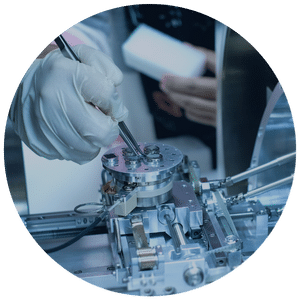
Metallic and Ceramic Coatings: Innovations, Applications, and Performance
Chairs: Dr. Mostafa Yakout, yakout@ualberta.ca; Dr. Maria Ophelia Jarligo, mjarligo@ualberta.ca; Dr. Meifeng Li, meifeng1@ualberta.ca, University of Alberta
The Symposium on Metallic and Ceramic Coatings invites researchers and industry professionals to explore cutting-edge developments, applications, and performance enhancements in coating technologies. Metallic and ceramic coatings serve as essential pillars in diverse industries, ensuring durability, functionality, and resilience across applications, from aerospace components to medical implants. This symposium acts as a dynamic platform to delve into the latest research, methodologies, and innovations driving advancements in these coatings. Discussions will center around pioneering fabrication techniques, material enhancements, surface engineering methodologies, and their profound impact on properties and applications. Join us to uncover breakthroughs in high-throughput fabrication technologies, corrosion resistance, wear protection, thermal barriers, and other crucial performance aspects shaping the future of coatings.

Nanomaterials Advancing the Hydrogen Economy
Chair: Dr. Karthik Shankar, kshankar@ualberta.ca,
University of Alberta
This symposium invites scholarly contributions in the domain of nanomaterials for green hydrogen production, hydrogen storage, and hydrogen utilization. Noteworthy attention is given to solid-state hydrogen storage mechanisms involving metal and complex hydrides, metal-organic frameworks (MOFs), and carbon-based nanomaterials. Additionally, the symposium highlights tailored metal and semiconductor nanoparticles designed for electrocatalytic and photocatalytic hydrogen production, constituting a rapidly expanding field. Ongoing research into heterogeneous nanostructured catalysts utilizing hydrogen for the production of chemicals and value-added products is also a focal point. The symposium aims to serve as a comprehensive platform for researchers from academia and industry to present their latest advancements in the expansive field of nanomaterials, contributing to the realization and progression of the hydrogen economy.
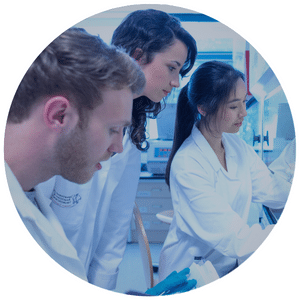
Operando Materials Characterization for Clean Energy
Chairs: Zhi Li, zhi.li@ualberta.ca, University of Alberta;
Keren Jiang, keren.jiang@nrcan-rncan.gc.ca, CanmetMATERIALS;
Jigang Zhou, jigang.zhou@lightsource.ca, CLS
Operando materials characterization stands as a pivotal tool to unveil dynamic structural changes during the operation of devices, serving as a linchpin in the rational development of clean energy technologies such as H2 production, batteries, and fuel cells. This symposium gathers national renowned researchers from the intersecting realms of clean energy and materials characterization to engage in a collaborative exploration of advanced operando characterization techniques, employing synchrotron and electron-based methodologies. Join us for a workshop that promises to be a platform for brainstorming, knowledge exchange, and the advancement of cutting-edge techniques in operando materials characterization for the betterment of clean energy technologies.


